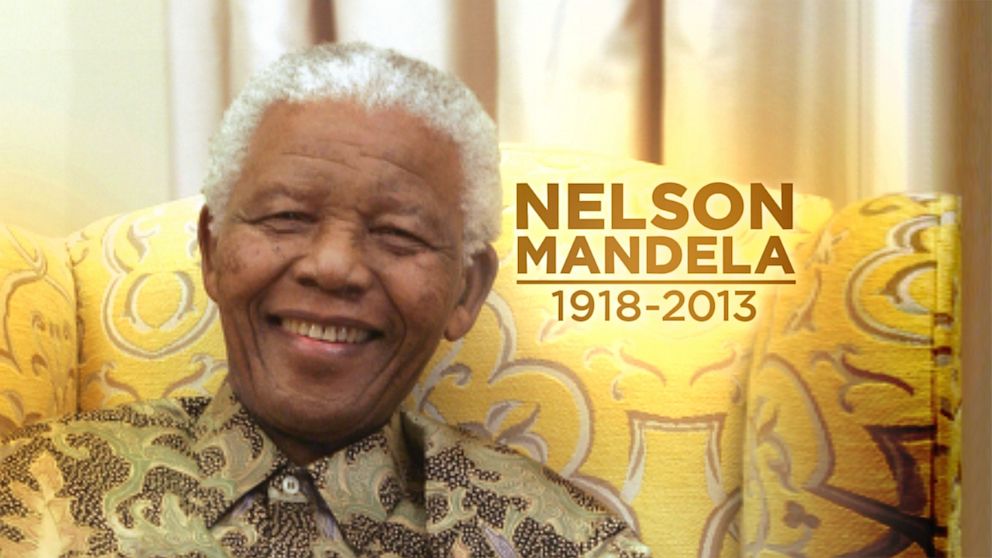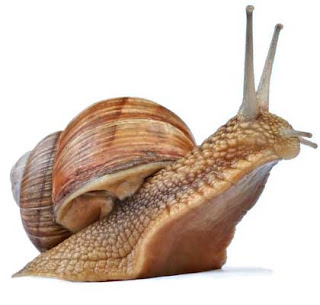Nelson Mandela ... THE TRUE LEADER

Nelson Rolihlahla Mandela 18 July 1918 – 5 December 2013) was a South
African anti-apartheid revolutionary, politician, and philanthropist, who
served as President of South Africa from 1994 to 1999. He was the country's
first black head of state and the first elected in a fully representative
democratic election. His government focused on dismantling the legacy of
apartheid by tackling institutionalized racism and fostering racial
reconciliation. Ideologically an African nationalist and socialist, he served
as President of the African National Congress (ANC) party from 1991 to 1997.
A Xhosa, Mandela was born in Mvezo
to the Thembu royal family. He studied law at the University of Fort Hare and
the University of the Witwatersrand before working as a lawyer in Johannesburg.
There he became involved in anti-colonial and African nationalist politics,
joining the ANC in 1943 and co-founding its Youth League in 1944. After the
National Party's white-only government established apartheid—a system of racial
segregation that privileged whites—he and the ANC committed themselves to its
overthrow. Mandela was appointed President of the ANC's Transvaal branch,
rising to prominence for his involvement in the 1952 Defiance Campaign and the
1955 Congress of the People. He was repeatedly arrested for seditious
activities and was unsuccessfully prosecuted in the 1956 Treason Trial.
Influenced by Marxism, he secretly joined the banned South African Communist
Party (SACP). Although initially committed to non-violent protest, in
association with the SACP he co-founded the militant Umkhonto we Sizwe in 1961
and led a sabotage campaign against the government. In 1962, he was arrested
for conspiring to overthrow the state and sentenced to life imprisonment in the
Rivonia Trial.
Mandela served 27 years in prison,
initially on Robben Island, and later in Pollsmoor Prison and Victor Verster
Prison. Amid growing domestic and international pressure, and with fears of a
racial civil war, President F. W. de Klerk released him in 1990. Mandela and de
Klerk negotiated an end to apartheid and organised the 1994 multiracial general
election in which Mandela led the ANC to victory and became President. Leading
a broad coalition government which promulgated a new constitution, Mandela
emphasised reconciliation between the country's racial groups and created the
Truth and Reconciliation Commission to investigate past human rights abuses.
Economically, Mandela's administration retained its predecessor's liberal
framework despite his own socialist beliefs, also introducing measures to
encourage land reform, combat poverty, and expand healthcare services.
Internationally, he acted as mediator in the Pan Am Flight 103 bombing trial
and served as Secretary-General of the Non-Aligned Movement from 1998 to 1999.
He declined a second presidential term and in 1999 was succeeded by his deputy,
Thabo Mbeki. Mandela became an elder statesman and focused on combating poverty
and HIV/AIDS through the charitable Nelson Mandela Foundation.
Mandela was a controversial figure
for much of his life. Although critics on the right denounced him as a
communist terrorist and those on the radical left deemed him too eager to
negotiate and reconcile with apartheid's supporters, he gained international
acclaim for his activism. Widely regarded as an icon of democracy and social
justice, he received more than 250 honours—including the Nobel Peace Prize—and
became the subject of a cult of personality. He is held in deep respect within South
Africa, where he is often referred to by his Xhosa clan name, Madiba, and
described as the "Father of the Nation".

Mandela was widely considered a charismatic leader,
described
by biographer Mary Benson as
"a born mass leader who could not help magnetizing people". He was
highly image conscious and throughout his life always sought out fine quality
clothes, with many commentators believing that he carried himself in a regal
manner.
His aristocratic heritage was repeatedly emphasized
by supporters, thus contributing to his "charismatic power". While
living in Johannesburg in the 1950s, he cultivated the image of the
"African gentleman", having "the pressed clothes, correct
manners, and modulated public speech" associated with such a position in
doing so, Lodge argued that Mandela became "one of the first media
politicians [...] embodying a glamour and a style that projected visually a
brave new African world of modernity and freedom". Mandela was known
to change his clothes several times a day and after assuming the presidency he
became so associated with highly colored Batik shirts
that they came to be known as "Madiba shirts".
For Betty Glad and Robert Blanton, Mandela
was an "exceptionally intelligent, shrewd, and loyal leader". His
official biographer, Anthony Sampson, commented that he was a "master of
imagery and performance", excelling at presenting himself well in press
photographs and producing sound bites. His public speeches were presented
in a formal, stiff manner, and often consisted of clichéd set phrases. He
typically spoke slowly, and carefully chose his words. Although he was not
considered a great orator, his speeches conveyed "his personal commitment,
charm and humor".
Mandela was a private person who often
concealed his emotions and confided in very few people. privately, he
lived an austere life, refusing to drink alcohol or smoke, and even as
President made his own bed. Renowned for his mischievous sense of humor, he
was known for being both stubborn and loyal, and at times exhibited a
quick temper. He was typically friendly and welcoming, and appeared
relaxed in conversation with everyone, including his opponents. A
self-described Anglophile, he claimed to have lived by
the "trappings of British style and manners" constantly polite
and courteous, he was attentive to all, irrespective of their age or status,
and often talked to children or servants. He was known for his ability to find
common ground with very different communities in later life, he always looked
for the best in people, even defending political opponents to his allies, who
sometimes thought him too trusting of others. He was fond of Indian cuisine, and had a lifelong interest in archaeology and
boxing.
He was raised in the Methodist denomination
of Christianity; the Methodist Church
of Southern Africa claimed that he retained his allegiance to
them throughout his life. On analyzing Mandela's writings, the theologian Dion Forster described him as a Christian humanist,
although added that his thought relied to a greater extent on the Southern
African concept of Ubuntu than on Christian theology. According
to Sampson, Mandela never had "a strong religious faith" however, while
Boehmer stated that Mandela's religious belief was "never robust".
Mandela was very self-conscious about being a
man and regularly made references to manhood. He was heterosexual, and biographer Fatima Meer said that he was "easily tempted"
by women. Another biographer, Martin Meredith, characterized him as being "by nature a
romantic", highlighting that he had relationships with various women. Mandela was married three times, fathered six
children, and had seventeen grandchildren and at least seventeen
great-grandchildren . He could be stern and demanding of his children, although
he was more affectionate with his grandchildren. His first marriage was to
Evelyn Ntoko Mase in October 1944; they divorced after 13 years in 1957
under the multiple strains of his adultery and constant absences, devotion to
revolutionary agitation, and the fact that she was a Jehovah's Witness, a
religion requiring political neutrality. Mandela's second wife was the social
worker Winnie Madikizela-Mandela, although they divorced in 1995. Mandela
married his third wife, Graça Machel, on his 80th birthday in 1998.
The significance
of Mandela can be considered in two related ways. First, he has provided
through his personal presence as a benign and honest conviction politician,
skilled at exerting power but not obsessed with it to the point of view of
excluding principles, a man who struggled to display respect to all... Second,
in so doing he was able to be a hero and a symbol to an array of otherwise
unlikely mates through his ability, like all brilliant nationalist politicians,
to speak to very different audiences effectively at once.
— Bill Freund, academic



Comments
Post a Comment